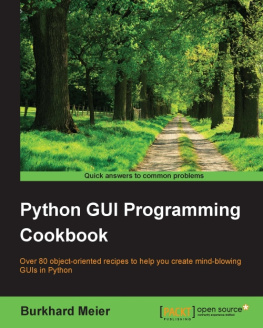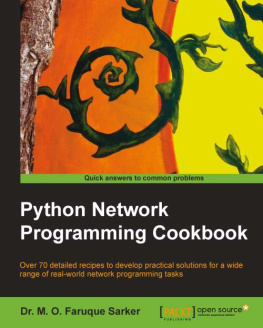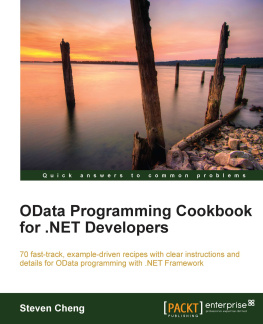Doug Bierer - PHP 7 Programming Cookbook
Here you can read online Doug Bierer - PHP 7 Programming Cookbook full text of the book (entire story) in english for free. Download pdf and epub, get meaning, cover and reviews about this ebook. year: 2016, publisher: Packt Publishing, genre: Computer. Description of the work, (preface) as well as reviews are available. Best literature library LitArk.com created for fans of good reading and offers a wide selection of genres:
Romance novel
Science fiction
Adventure
Detective
Science
History
Home and family
Prose
Art
Politics
Computer
Non-fiction
Religion
Business
Children
Humor
Choose a favorite category and find really read worthwhile books. Enjoy immersion in the world of imagination, feel the emotions of the characters or learn something new for yourself, make an fascinating discovery.
- Book:PHP 7 Programming Cookbook
- Author:
- Publisher:Packt Publishing
- Genre:
- Year:2016
- Rating:4 / 5
- Favourites:Add to favourites
- Your mark:
PHP 7 Programming Cookbook: summary, description and annotation
We offer to read an annotation, description, summary or preface (depends on what the author of the book "PHP 7 Programming Cookbook" wrote himself). If you haven't found the necessary information about the book — write in the comments, we will try to find it.
Over 80 recipes that will take your PHP 7 web development skills to the next level!
About This Book- This is the most up-to-date book in the market on PHP
- It covers the new features of version 7.x, best practices for server-side programming, and MVC frameworks
- The recipe-based approach will allow you to explore the unique capabilities that PHP offers to web programmers
If you are an aspiring web developer, mobile developer, or backend programmer, then this book is for you as it will take your PHP programming skills to next level. Basic knowledge of PHP programming is assumed.
What You Will Learn- Use advanced PHP 7 features, such as the Abstract Syntax Tree, Uniform Variable Syntax, Scalar Type Hints, Generator Delegation, Anonymous Classes, and the Context Sensitive Lexer
- Discover where and when PHP 5 code needs to be re-written to avoid backwards-compatibility breaks
- Improve the overall application security and error handling by taking advantage of classes that implement the new throwable interface
- Solve practical real-world programming problems using PHP 7
- Develop middle-wareclasses that allow PHP developers to gluedifferent open source libraries together seamlessly
- Define and Implement PSR-7 classes
- Create custom middleware using PSR-7 compliant classes
- Test and debug your code, and get to know the best practices
PHP 7 comes with a myriad of new features and great tools to optimize your code and make your code perform faster than in previous versions. Most importantly, it allows you to maintain high traffic on your websites with low-cost hardware and servers through a multithreading web server.
This book demonstrates intermediate to advanced PHP techniques with a focus on PHP 7. Each recipe is designed to solve practical, real-world problems faced by PHP developers like yourself every day. We also cover new ways of writing PHP code made possible only in version 7. In addition, we discuss backward-compatibility breaks and give you plenty of guidance on when and where PHP 5 code needs to be changed to produce the correct results when running under PHP 7. This book also incorporates the latest PHP 7.x features.
By the end of the book, you will be equipped with the tools and skills required to deliver efficient applications for your websites and enterprises.
Style and approachThis book takes a recipe-based approach, with real-world examples that can serve as building blocks for a larger application. Each recipe is self-contained with no external dependencies. This book follows a problem-solution strategy so you understand how to deal with various scenarios you may encounter while using PHP 7 in your daily activities.
Doug Bierer: author's other books
Who wrote PHP 7 Programming Cookbook? Find out the surname, the name of the author of the book and a list of all author's works by series.

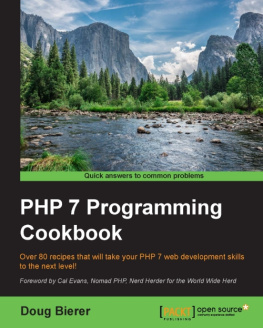
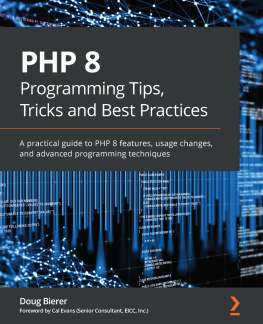

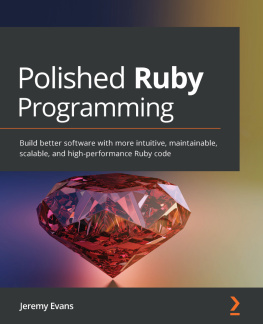
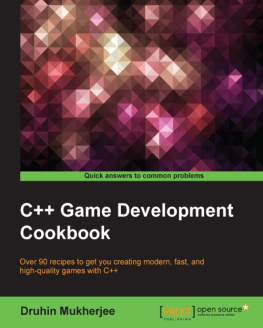
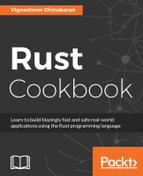
![Mark Lassoff [Mark Lassoff] - Java Programming for Beginners](/uploads/posts/book/119362/thumbs/mark-lassoff-mark-lassoff-java-programming-for.jpg)
